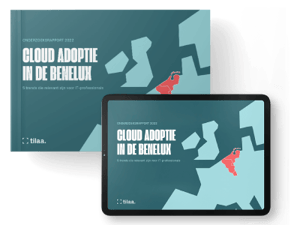
Public cloud, private cloud, multi-cloud, hybrid cloud and community cloud: what are the differences and what are the benefits per type of infrastructure solution? This blog provides insight and assists you in making the best decision for your organization.
To determine which cloud deployment model could be suitable for you, you need to understand all 5 models first.
Tilaa has listed the various options for you, including all of the benefits. This allows you to easily decide on the infrastructure solution that is best suited to your organization.
What is public cloud
Public clouds are cloud environments typically created from IT infrastructure not owned by the end user. All clouds become public clouds when the environments are partitioned and redistributed to multiple tenants. With the public cloud, you don't own the hardware and you don't have access to where it is (typically in data centers). It's the most popular type of cloud and companies of all sizes use it. Start-ups, in particular, prefer the cloud in order to scale quickly.
Public cloud benefits
- You don't have to buy hardware and the supplier is responsible for the maintenance
- Unlimited up and downscaling as needed
- You only pay for the service, not the required hardware and software
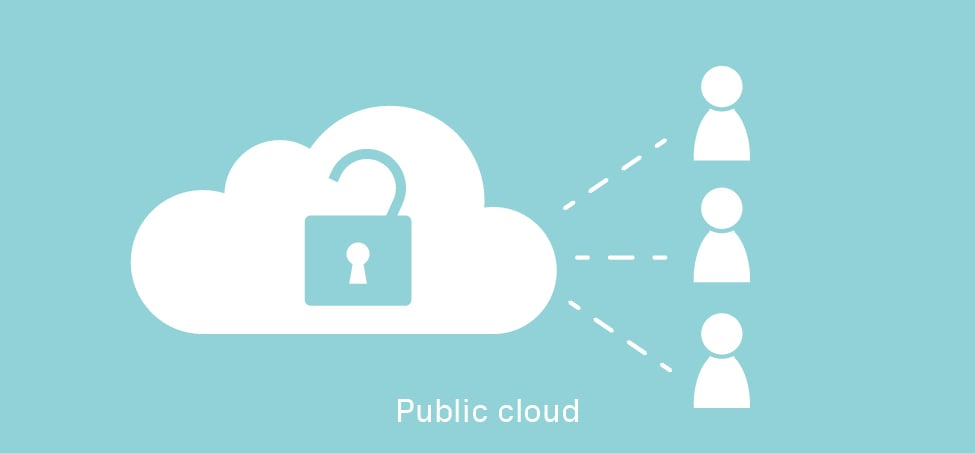
What is private cloud
A private cloud is a single-tenant environment where the hardware, storage and network are bought by and dedicated to a single client or company. The hardware can be owned by either the buyer or the supplier, but it is only used by the user. When you build an abstraction layer on top of your physical servers, you can manage your private cloud in the same way and with the same flexibility that you would manage a public cloud. You can easily add new servers because they will (semi) automatically join the cluster. Private cloud services can be dedicated or provided on-premises.
Private cloud benefits
- Fully customized to the wishes and needs of the organization that chooses it
- The customer has more control over the solution and/or hardware
- Resources are not shared with others
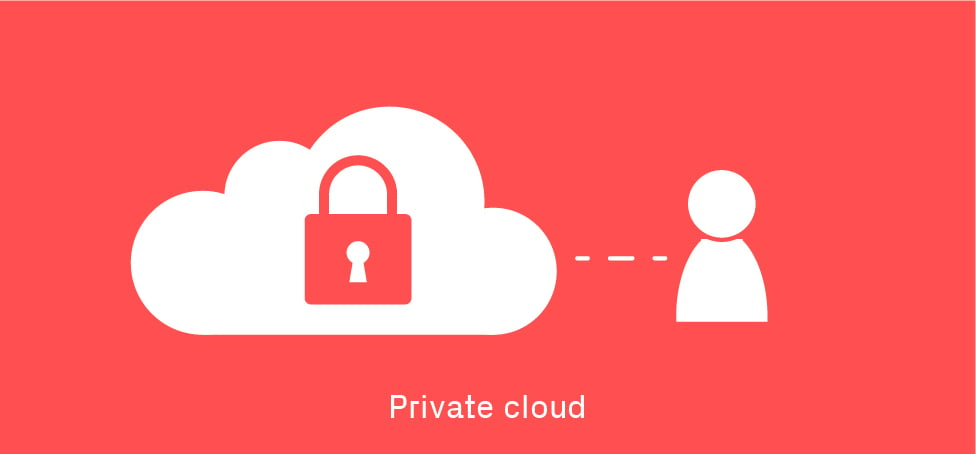
What is multi-cloud
Do you want to use multiple public (or private) cloud providers? Then a multi-cloud solution might be a good option. Multi-cloud solutions are typically chosen by businesses who want to combine various public cloud services, mainly for redundancy reasons. If an incident happens in one cloud, they can always the other. Multi-cloud is also convenient when businesses need specific serves from different cloud providers. For example, one solution could serve as a database, while another could serve as a user identification system. Do you want to combine public and private cloud solutions? Then a hybrid cloud solution could be a better option.
Multi-cloud benefits
- Helps to bundle multiple public or private cloud resources into a single interface
- More redundancy since you can rely on multiple clouds
- Can manage separate cloud services, but can also combine activities
- No reliance on a single provider for specific services
- Easy up and downscaling
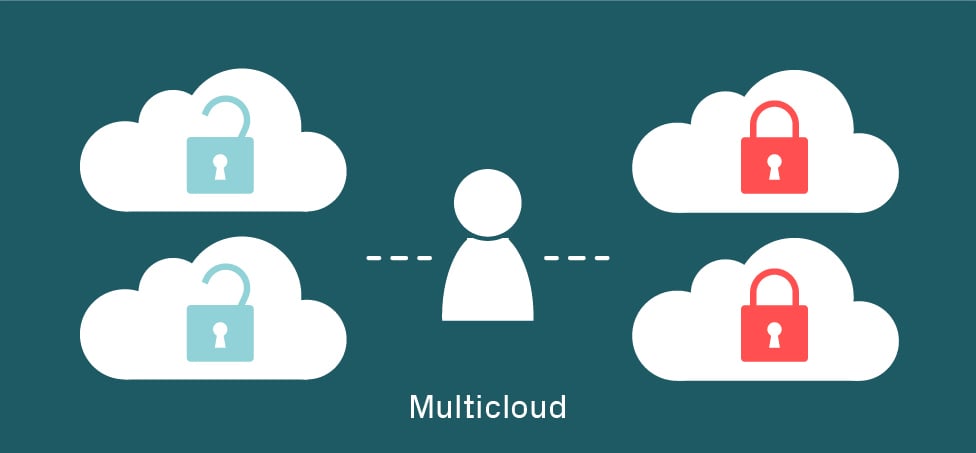
What is hybrid cloud
With the hybrid cloud, you can combine both public and private clouds with each other. The hybrid cloud is a popular model because many businesses already have hardware and would like to use it. Both infrastructures operate independently of one another, but they work as one system and they exchange applications and data. Business applications, for example, remain private, but data can be stored in the public cloud. One significant advantage is that you can keep sensitive data on your own network while using shared resources for everything else.
Hybrid cloud benefits
- Unlimited upscaling and downscaling as needed
- Extra safe when you store important data locally
- You only pay for the hardware you use
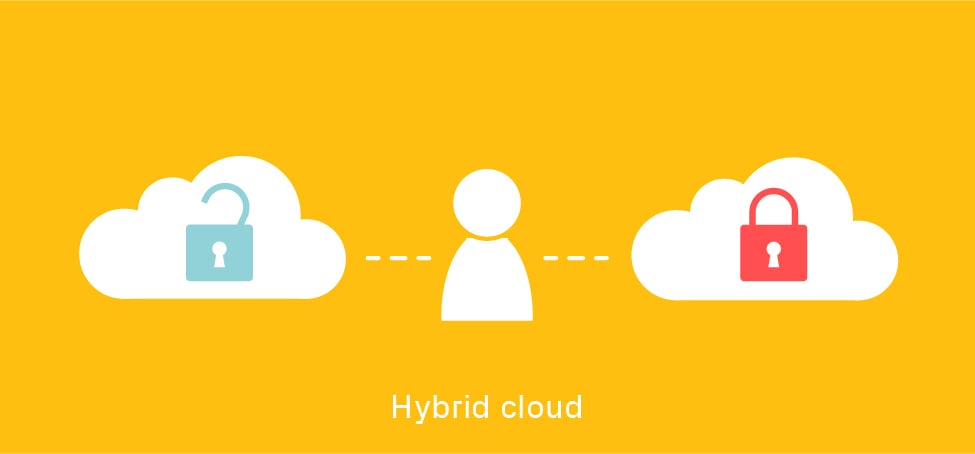
What is community cloud
The community cloud is a less known option and for a reason. It's dedicated to a few organizations, from the same community. The community cloud is a multi-tenant platform that helps different organizations to work on a shared platform. The purpose of this concept is to allow multiple customers to work on joint projects and applications that belong to the community, where it is necessary to have a centralized cloud infrastructure. For example, mortgage advisors who want to make a personal offer with current interest rates of different banks.
Community cloud benefits
- There is no need to rely on a single provider for specific services
- Because it is shared by similar users, the platform is more customizable and can be adapted to the needs of the community
- The hardware and maintenance costs can be shared among the users.
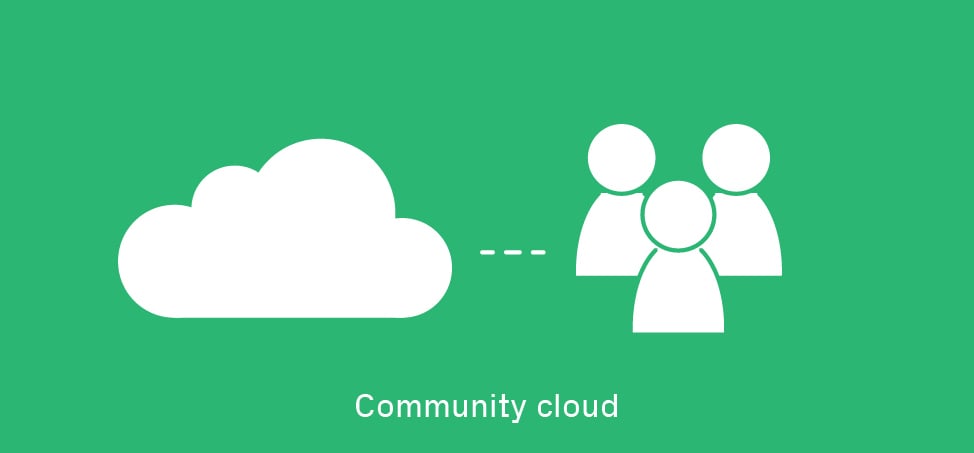
Tilaa: your preferred cloud partner
In this article, you've read everything about the 5 different types of cloud deployment. Tilaa is an expert in the field of business cloud computing. We offer our own public cloud and can advise on any deployment or strategy, as well as assist organizations in building the cloud environment that is best suited to their needs.
Do you want to know which cloud solution suits you best or have any further questions? Feel free to contact us or use our configurator to get a customized setup!

